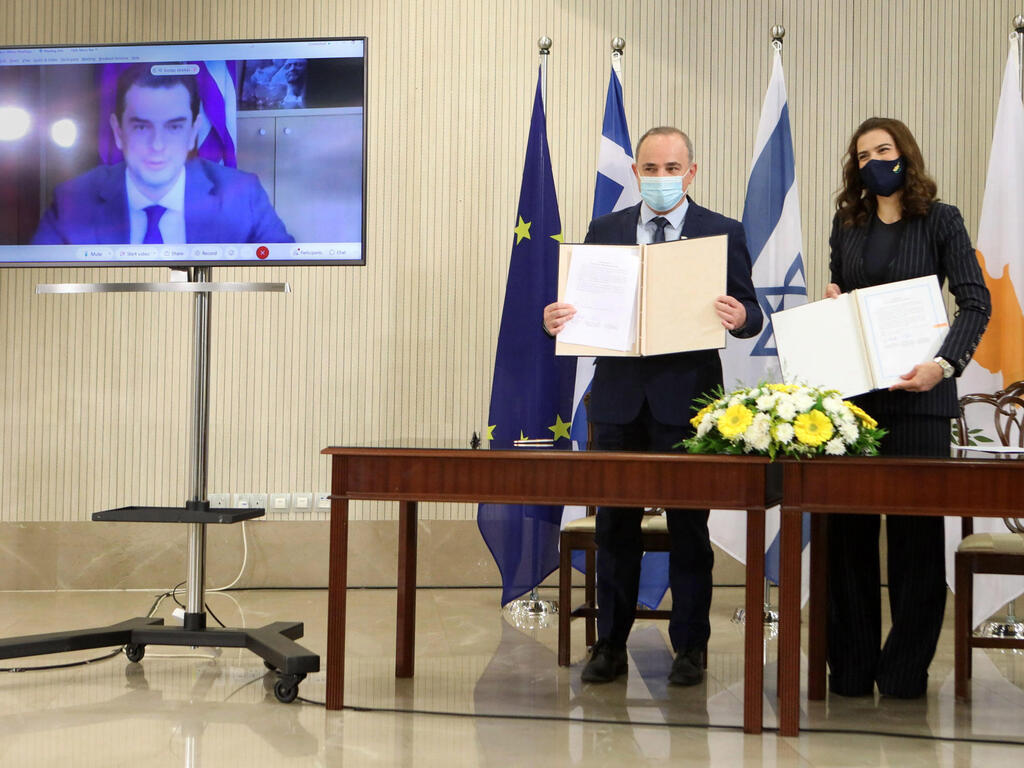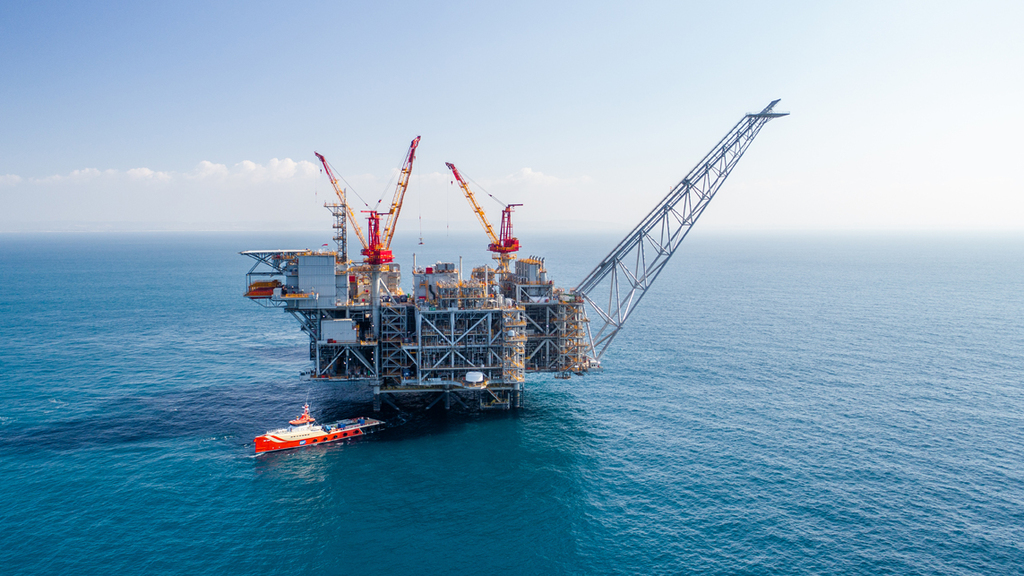Getting your Trinity Audio player ready...
Israel and Cyprus have reached an understanding over gas reserves straddling their maritime border, the Cypriot energy minister said on Tuesday, in a key step towards resolving a nine-year impasse over offshore spoils.
Development of the Aphrodite gas field in Cypriot waters has been held up because a small part of it stretches into Israel's maritime zone. The field was first discovered in 2011.
Cypriot energy minister Natasa Pilides said she and her Israeli counterpart Yuval Steinitz had agreed upon a framework to resolve the issue, and guidelines would be passed on to the companies involved in the project.
"The framework will be set out in a joint letter which is being prepared. We are both very satisfied we are now at this point after nine years of discussion," Pilides told reporters as Steinitz, who was in Cyprus to sign a memorandum of understanding on another project, prepared to depart the island.
Steinitz said there was a 'fair chance' of an eventual resolution. "Nothing is certain, but there is a good chance that this might lead us to a solution of this little but significant obstacle in the wonderful relations and cooperation between Cyprus and Israel on energy and on many other issues," he said in comments carried by the semi-official Cyprus News Agency.
Cyprus had in 2019 signed a 25-year concession with Noble Energy, Shell and Delek Drilling for exploitation of the Aphrodite field.
Israel had maintained an agreement was required before work started because part of Aphrodite overlapped on to the Israeli side.
The Aphrodite field holds an estimated 4.1 trillion cubic feet of gas. At stake was about 10% of the deposit, which is a fraction of the gas already discovered in Israel.
2 View gallery


Yuval Steinitz with his Cypriot counterpart Natasa Pilides and Greek Energy Minister Kostas Skrekas on video call, after signing deal linking power grids on Monday
(Photo: EPA)
Cyprus, Israel and Greece on Monday signed an initial agreement to build the world's longest and deepest underwater power cable that will traverse the Mediterranean seabed at a cost of about $900 million and link their electricity grids.
The project, called the Euro-Asia interconnector, will provide a back-up power source in times of emergency, said Energy Minister Yuval Steinitz, who was in Nicosia to sign a memorandum of understanding with his counterparts.


